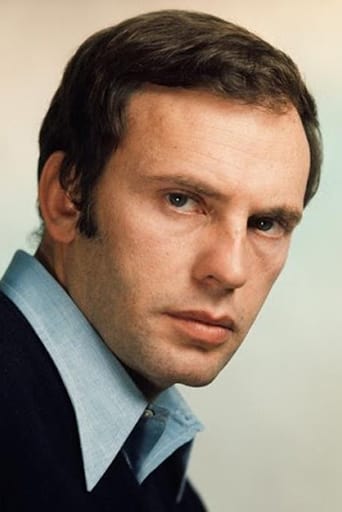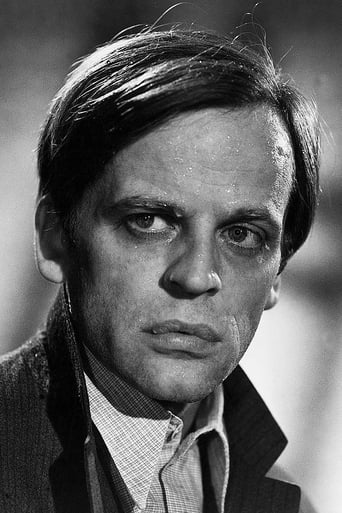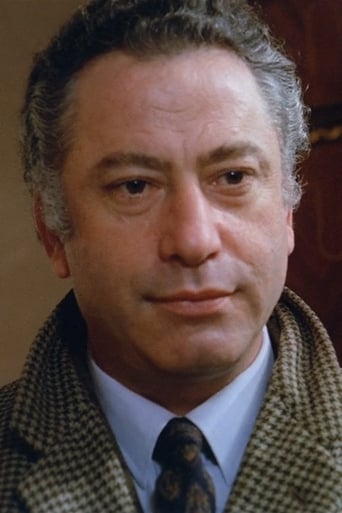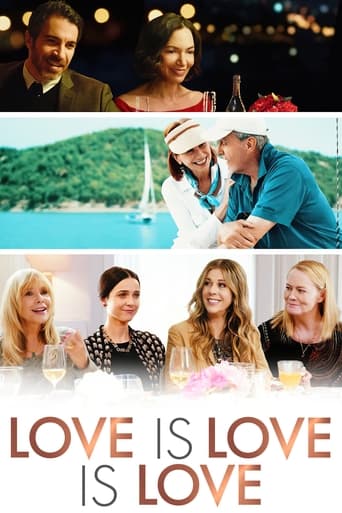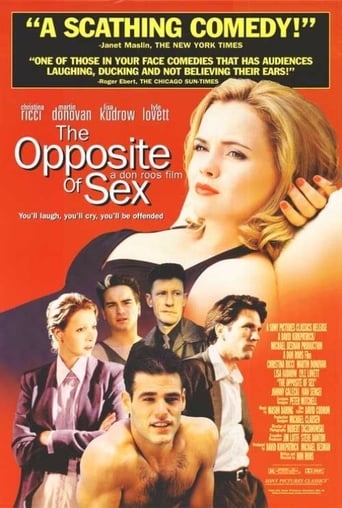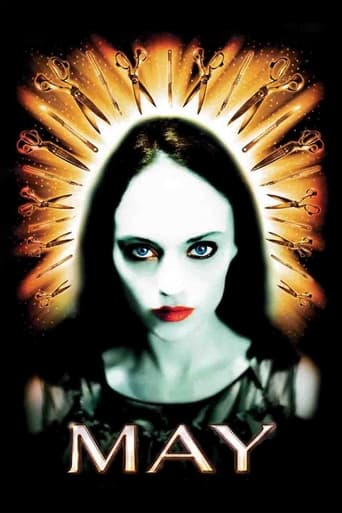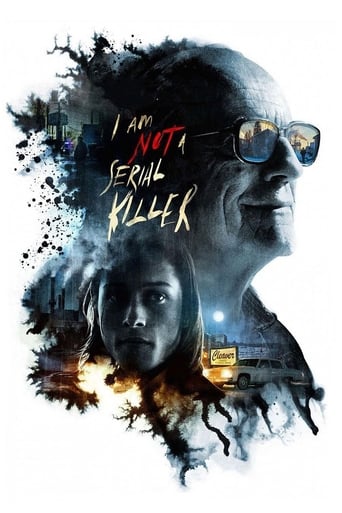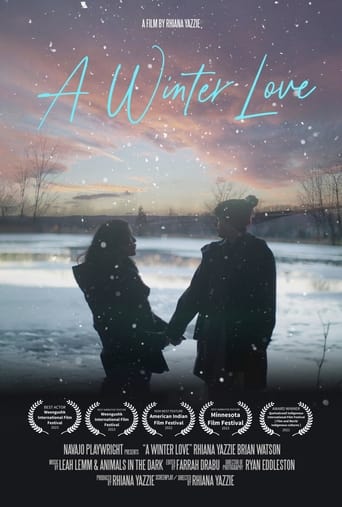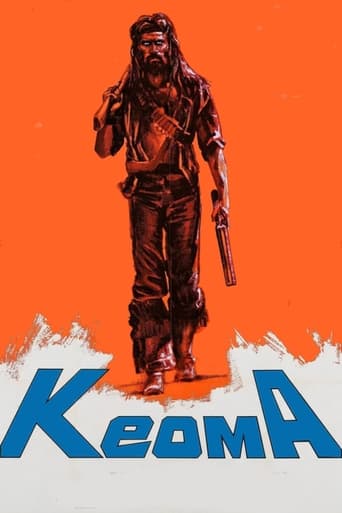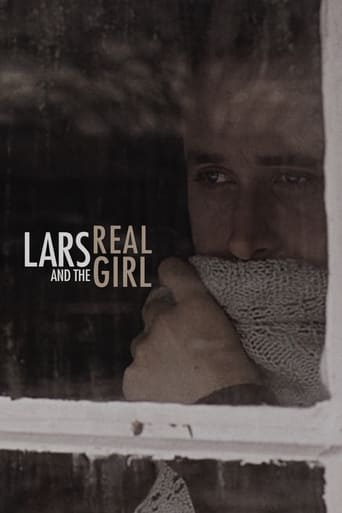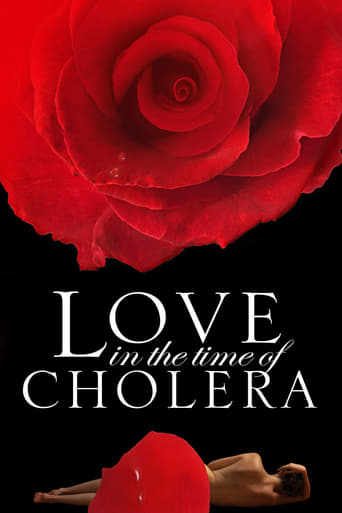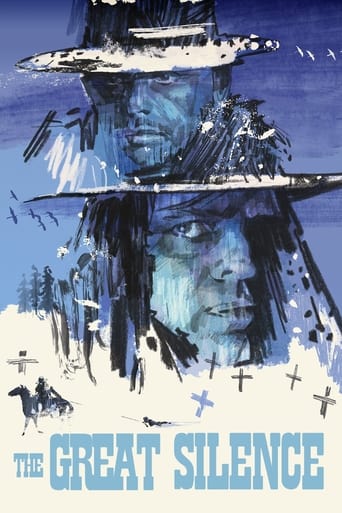
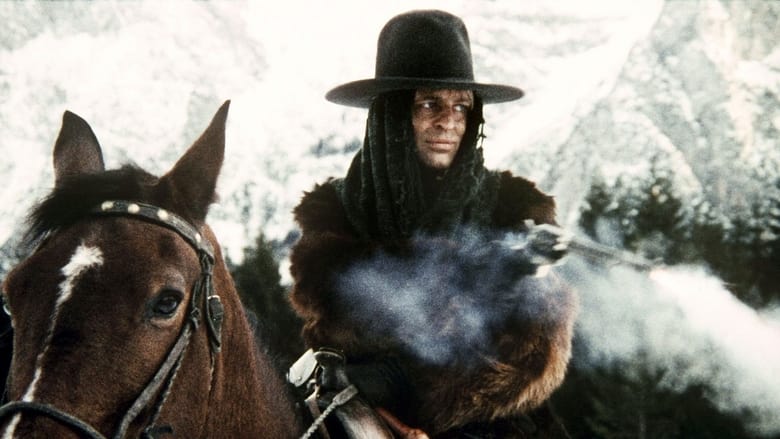
The Great Silence (1968)
A mute gunslinger fights in the defense of a group of outlaws and a vengeful young widow, against a group of ruthless bounty hunters.
Watch Trailer
Cast
Similar titles
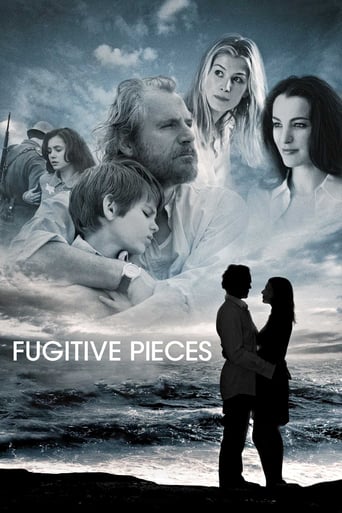
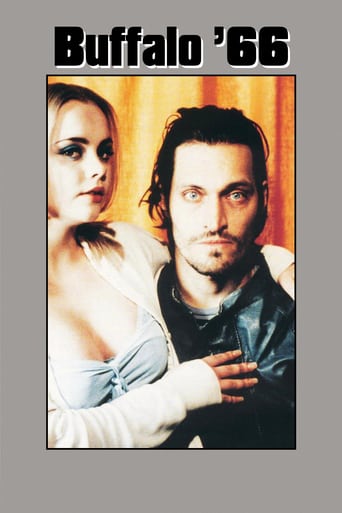
Reviews
Best movie of this year hands down!
Overrated and overhyped
hyped garbage
The movie's not perfect, but it sticks the landing of its message. It was engaging - thrilling at times - and I personally thought it was a great time.
"The Great Silence" has to take the cake as one of the finest entries into the beloved Spaghetti Western genre. Giving it a degree of freshness is the setting: the wintry wilderness of 1898 Utah. No other Western that this viewer has seen has shown off such a harsh and forbidding environment. It lends the film a true beautiful bleakness that has seldom been matched. With typically majestic (and melancholy) music by the maestro Ennio Morricone on the soundtrack, it grimly moves with a steady purpose towards inevitability.French actor Jean-Louis Trintignant plays "Silence", a mute gunslinger whose vocal chords were permanently damaged when he was a child. He arrives in the community of Snow Hill, where the husband of Pauline Middleton (the strikingly attractive young Vonetta McGee) has been murdered by Loco (Klaus Kinski), the leader of a group of "bounty killers". These individuals are much more ruthless than the typical bounty hunter; they actually PREFER to take their quarry back dead. All they care about is profit. Pauline implores Silence to get revenge on her behalf, even though she can't offer him a payday in return.The strong supporting cast also includes Frank Wolff as a dedicated Sheriff, Luigi Pistilli as a slimy mover-and-shaker type, and Mario Brega as Martin. They're all great, with Kinski getting to play one of the most repulsive villains on his resume. And you can tell he's enjoying himself. McGee is very compelling to watch. Trintignant, on the other hand, isn't bad at all, but ultimately lacks the screen presence & charisma of someone like Franco Nero or Clint Eastwood.Directed in high style by Sergio Corbucci (this is definitely his best work in this genre), this creates an interesting gallery of characters that are all very well defined. You're never in any doubt as to who you should be booing and for whom you should be rooting.Corbucci pulls absolutely no punches in this picture, which gains further immortality by giving us one of the most hopeless bummer endings that one is likely to see in such entertainment. It's emotionally draining, to say the least, and ensures that this film will continue to live on for many more years to come.Nine out of 10.
The Great Silence is directed by Sergio Corbucci and Corbucci co- writes the screenplay with Mario Amendola, Bruno Corbucci and Vittoriano Petrilli. It stars Jean-Louis Trintignant, Klaus Kinski, Frank Wolff, Luigi Pistilli, Vonetta McGee and Mario Brega. Music is by Ennio Morricone and cinematography by Silvano Ippoliti.Snowhill, Utah - Winter at the turn of the century, and the local villagers have succumbed to thievery purely to survive. But with that comes bounties on their heads, which brings into the area the bounty hunters who are a law unto themselves. Enter the mute gunfighter known as Silence, who has a deep rooted hatred of bounty hunters...Something of a cult classic and massively popular in Spaghetti Western fan's circles, The Great Silence is as perpetually cold as the snowy landscapes that surround this tale. Death is a financial commodity, greed and corruption stalks the land, while the shades between right and wrong are as blurry as can be. The violence cuts deep, none more so than with the famous finale that closes down the pic with a pneumatic thud. The photography captures the winter scapes perfectly and is in tune with the narrative drive, while maestro Morricone lays a ethereal musical score over proceedings. There's some daft goofs such as a dead man blinking and manacles that mysteriously disappear, and not all the acting is of the standard that Kinski and Wolff provide, but this is one utterly unforgettable bowl of Spaghetti. Its reputation in the pasta circles well deserved. 8/10
It's hard to gauge this because the dubbing into American accents was not so good. Twas a distraction and would have been better with subtitles. The dubbing on its own is bad but that also throws the sound off at times. What's great about this spaghetti western is definitely the snowy scenery of the Dolomites in northern Italia. What a production filming in such conditions. Our protagonist (Jean-Louis Trintignant) and antagonist (Klaus Kinski) are both solid in their performances. Interesting social undertones with a fine hero out to destroy a terrible villain. But all that gets shot down, literally, at the end. In American westerns you know who wins. American westerns I love and have seen perhaps 1,000 of. So the ending here left me shocked. Many westerns come and go, to be forgotten about for all time. Not this one! --A Kat Pirate Screener
Corbucci's brutal western recreates the Snow Hill, Utah, massacre of 1898, and pulls no punches in doing so. Jean-Louis Trintignant stars as not only the man with no name (complete with cheroot), but the man with no voice. Jean-Louis looks quite at home on the range which is more than can be said for his nemesis and bounty hunter Klaus Kinski who wears a fur coat so huge, he looks like he stepped out of his friend's (Herzog) documentary about bears.The subtitled dialogue is pretty terrible and the Italian cast with their cissy haircuts don't exactly exude authenticity as cowpokes. Combine all this with a lack of respect for the 'code of the west', epitomised in an ending which is beyond bleak, and you begin to see why western purists hate the spaghetti offshoots so much. It's not so much their revisionism as a destruction of a nation's imagined history. Visually, it's a stunning piece of work, from trademark close-ups to atypical snowy landscapes it's a visual treat while Ennio Morricone's score comprising classical and ambient electronics, is superb and worthy of a separate listen. Overall, though, I'd say 'spaghetti' is something of misnomer here, this is more like raw meat.
